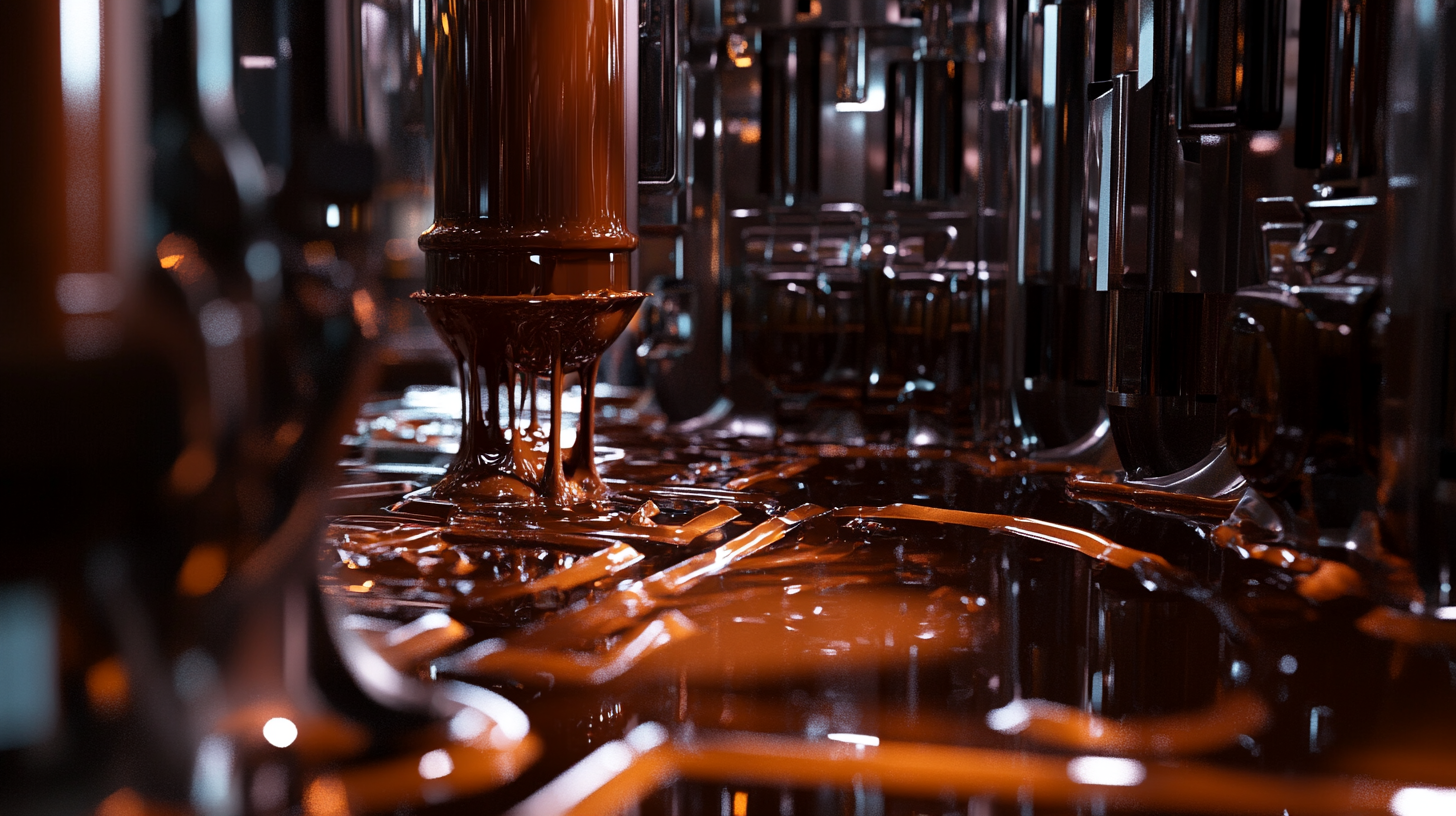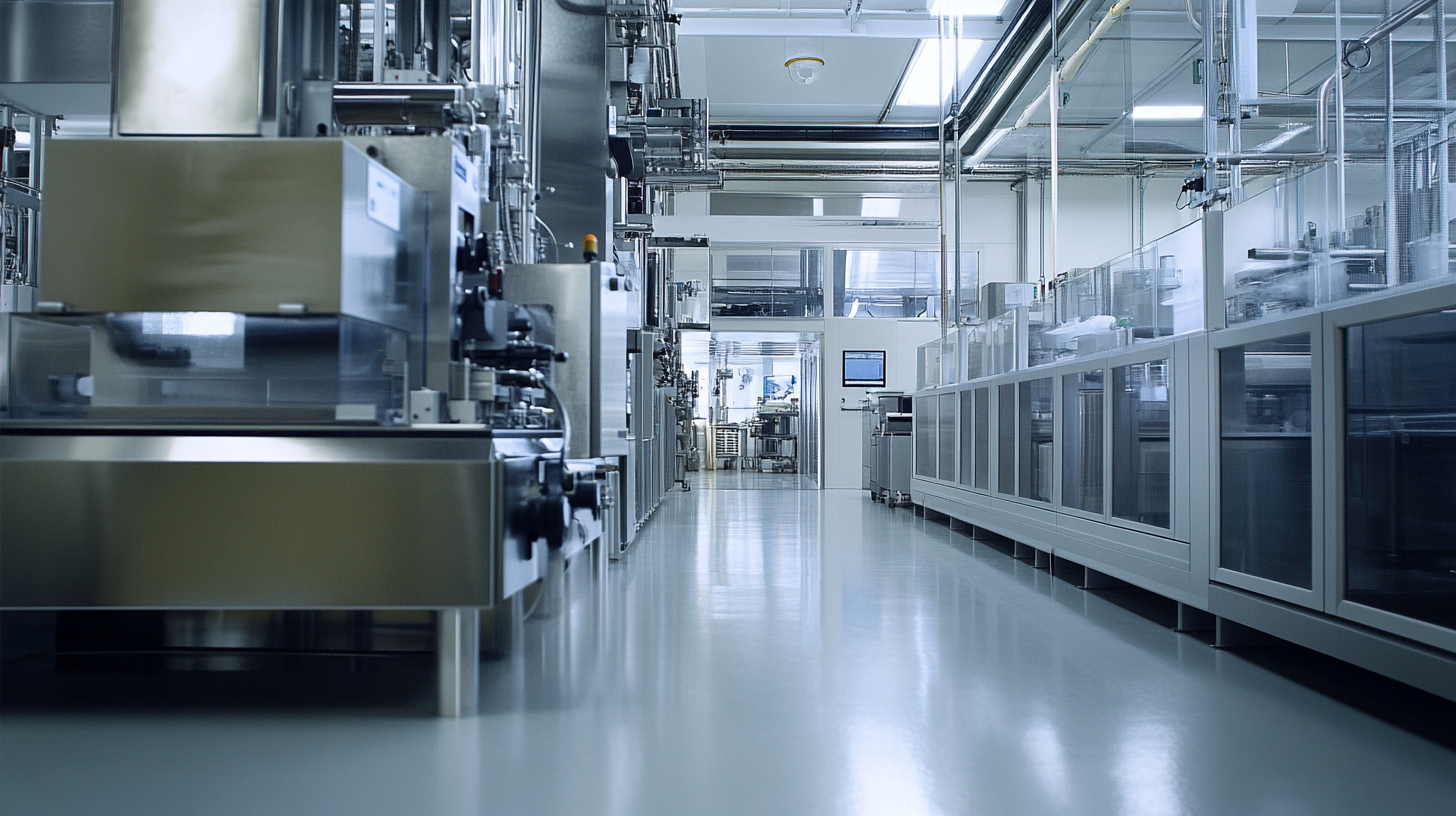Global Manufacturing Standards in Chocolate Machines Unveiling Industry Insights and Innovations
The global chocolate manufacturing industry is experiencing a remarkable transformation driven by advancements in technology and evolving consumer preferences. According to a report by Grand View Research, the chocolate market is expected to reach USD 162.24 billion by 2024, with a compound annual growth rate (CAGR) of 4.6%. This growth necessitates the adoption of modern chocolate machines that meet escalating production demands while ensuring high-quality standards. As manufacturers aim to scale operations and enhance efficiency, understanding the role of global manufacturing standards becomes essential in navigating this dynamic landscape.
Innovations in chocolate machines are reshaping the industry, enabling producers to refine their processes and deliver products that meet diverse consumer tastes. A recent study from MarketsandMarkets projects that the chocolate processing equipment market will grow to USD 5.64 billion by 2026, fueled by the incorporation of automation and smart technologies. These developments are not only optimizing production but also aligning with sustainability practices, reflecting a shift towards more eco-friendly initiatives in chocolate making. As we delve deeper into the insights surrounding chocolate machines, it becomes apparent that maintaining adherence to global manufacturing standards is critical in fostering innovation and ensuring competitiveness in the ever-evolving market.

Emerging Trends in Global Manufacturing Standards for Chocolate Machinery
The chocolate manufacturing industry is undergoing transformative changes, driven by the emergence of new global manufacturing standards for chocolate machinery. As consumer demand for high-quality products rises, manufacturers are compelled to innovate and adapt their processes to meet these stringent guidelines. These standards not only ensure product safety and quality but also aim to enhance efficiency and sustainability within the production landscape. One of the significant trends shaping these manufacturing standards is the emphasis on automation and digitalization. Smart machinery equipped with advanced sensors and data analytics capabilities is revolutionizing how chocolate is produced. Manufacturers are now able to monitor processes in real-time, leading to improved consistency and reduced waste. Moreover, the integration of artificial intelligence into machinery allows for predictive maintenance, minimizing downtime and enhancing overall productivity. Sustainability is another key focus area in the evolution of manufacturing standards. As environmental concerns escalate, chocolate machinery is being designed to utilize energy more efficiently and minimize waste. Innovative technologies are being developed to recycle by-products and reduce the carbon footprint of production. This shift not only meets regulatory requirements but also aligns with consumer preferences for ethically sourced and environmentally friendly products, driving manufacturers towards more responsible practices. In conclusion, the growing emphasis on automation and sustainability in chocolate machinery reflects a broader shift in the industry, setting the stage for a future where quality, efficiency, and environmental stewardship coexist harmoniously.

Innovative Technologies Shaping the Future of Chocolate Production
In the realm of chocolate production, innovative technologies are not only enhancing the quality of the final product but also revolutionizing the entire manufacturing process. As consumer preferences shift towards artisanal and sustainably produced chocolates, manufacturers are compelled to adapt by integrating cutting-edge machinery and advanced techniques. From bean-to-bar processes that ensure maximum flavor retention to automated systems that streamline production, technology is playing a pivotal role in shaping the future of chocolate manufacturing.
One of the most significant innovations is the implementation of smart technology in chocolate machines. These machines are equipped with sensors and machine learning algorithms that monitor and adjust parameters in real-time, ensuring consistency and quality throughout the production cycle. This not only reduces waste but also enhances the efficiency of the manufacturing process, allowing companies to respond more swiftly to market demands. Moreover, advancements in robotics are enabling greater precision in tasks such as tempering and molding, which are crucial for creating high-quality chocolate products.
Additionally, sustainability remains a driving force in the chocolate industry, prompting manufacturers to invest in eco-friendly technologies. From energy-efficient machines that reduce electricity consumption to systems designed for waste recycling, the focus is increasingly on minimizing environmental impact. Innovations such as blockchain technology also play a vital role by allowing for greater traceability of ingredients, ensuring ethical sourcing practices. As these technologies continue to evolve, they will undoubtedly redefine the landscape of chocolate production, making it more efficient, sustainable, and aligned with the values of modern consumers.

Regulatory Challenges and Solutions in the Chocolate Manufacturing Sector
In the chocolate manufacturing sector, navigating regulatory challenges is crucial for ensuring product quality and safety. According to a report by the International Cocoa Organization, the global chocolate market is projected to reach approximately $162.16 billion by 2024, underscoring the increasing demand for adherence to stringent manufacturing standards. However, the rise in regulations poses significant hurdles for manufacturers, especially small and medium enterprises (SMEs) that may lack the resources to comply with complex requirements.
One notable regulatory obstacle is the standardization of ingredient sourcing and labeling. The Cocoa Sustainability Program reported that over 70% of chocolate manufacturers struggle with traceability in their supply chains, hindering their ability to meet regulatory compliance, particularly in the European market, where traceability is mandated. To overcome these challenges, companies are investing in blockchain technology to enhance transparency and ensure responsible sourcing, thereby aligning with both consumer expectations and regulatory frameworks.
Moreover, food safety regulations have evolved significantly, with the Global Food Safety Initiative (GFSI) certifying various chocolate manufacturing standards. This evolution necessitates ongoing training and adaptation within the industry. A study by Deloitte highlighted that companies adopting GFSI standards reported a 30% increase in operational efficiency. Embracing these innovations not only assists manufacturers in navigating regulatory environments but also positions them competitively in a market increasingly focused on high-quality, ethically produced chocolate.

Sustainability Practices in Chocolate Machine Production and Design
In recent years, sustainability has emerged as a critical focus in the production and design of chocolate machines. As the chocolate industry grapples with increasing environmental concerns, manufacturers are stepping up to implement eco-friendly practices that not only reduce waste but also enhance the overall efficiency of their operations. By utilizing materials that are renewable and recyclable, companies are not only minimizing their ecological footprint but also paving the way for more responsible chocolate production processes.
Innovations in machine design play a vital role in promoting sustainability. State-of-the-art chocolate machines are now being engineered to consume less energy and water, thanks to advanced technology and materials. For instance, the integration of smart sensors allows for real-time monitoring and optimization of energy usage, ultimately leading to cost savings and reduced environmental impact. Furthermore, modular designs enable manufacturers to easily upgrade specific components, extending the lifespan of machines and decreasing the need for frequent replacements.
The adoption of sustainable practices also extends to supply chain management. Many chocolate machine producers are sourcing components from local suppliers to decrease transportation emissions and support local economies. Moreover, partnerships with organizations focused on sustainability help manufacturers to refine their processes and ensure compliance with global environmental standards. As these sustainability practices become more prominent, the chocolate industry can contribute to a healthier planet while continuing to delight consumers with their beloved treats.
The Role of Automation in Enhancing Chocolate Manufacturing Efficiency
As the chocolate manufacturing industry continues to grow, the integration of automation technology plays a pivotal role in enhancing production efficiency. Modern chocolate machines equipped with advanced automation features streamline the entire manufacturing process, from ingredient mixing to packaging. By minimizing human intervention, manufacturers can reduce the risk of errors, ensuring consistent quality and taste in every batch of chocolate produced.
The implementation of automated systems also allows for greater scalability in production. With smart technology, factories can adjust their output levels swiftly to meet fluctuating market demands without compromising quality. Automated machines can monitor various parameters in real-time, allowing manufacturers to optimize processes based on data insights. This real-time feedback loop not only improves operational efficiency but also reduces waste, making chocolate production more sustainable.
Moreover, automation fosters innovation in chocolate manufacturing. With cutting-edge technology, manufacturers can experiment with unique formulations and processing techniques that were previously too labor-intensive. The ability to quickly prototype and test new recipes can lead to the development of exciting new chocolate products, thus giving brands a competitive edge in a rapidly evolving market. As the chocolate industry continues to embrace automation, the future holds immense potential for enhanced efficiency and unprecedented creativity in chocolate production.